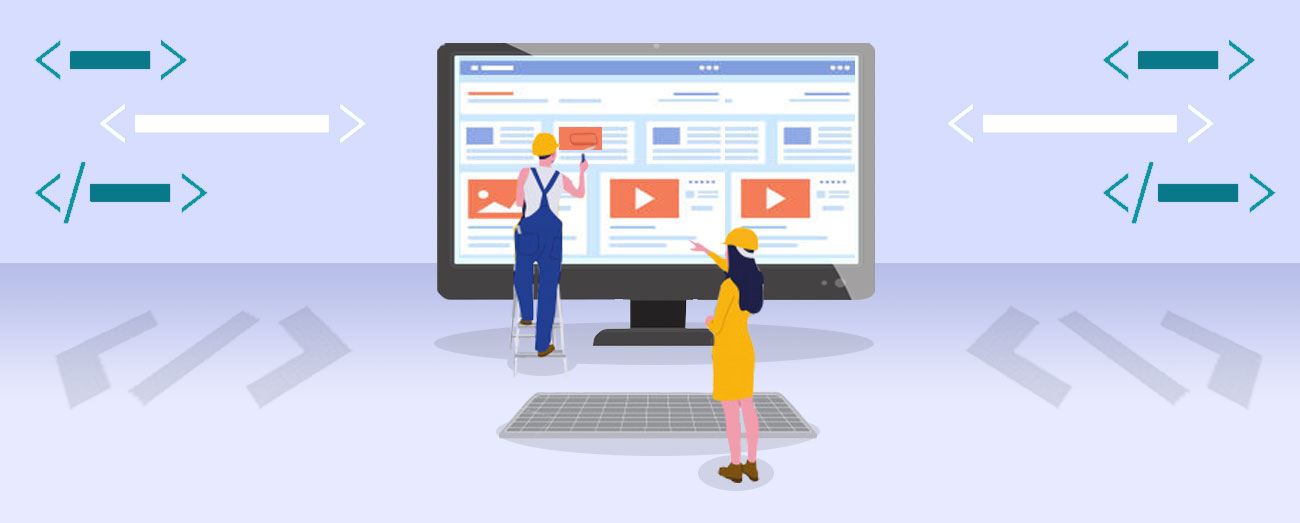5 Popular CMS Options
Tagged with: Hosting & Maintenance
A CMS, or content management system, is software that allows websites and content to be managed easily without writing code or learning how to program. This means you can add pages and images to your website without the help of a designer or developer! There are a lot of CMS platforms out there, and picking the best one for your business can be a daunting task. Below you will find the pros and cons of 5 Popular CMS platforms that many of our clients use to manage their websites.
1 – WordPress
WordPress is the world’s most popular CMS option. It is an open-source CMS created in the PHP language to create any type of website. Open source means that the original code is available to all and can be modified.
Pros:
- User-friendly and easy to navigate for users to create or edit stunning web pages and organize uploaded content.
- Thousands of paid and free themes and plugins to choose from, allowing users to customize and enhance their site. For example, SEO plugins are designed to help get your site listed in the top results in major search engines.
- Open-source software means a large community of support and developers to help if you run into problems.
Cons:
- A domain name, hosting, security, and backups are all the site owner’s responsibilities.
- Sites are more vulnerable to potential hackers because of the open-source platform.
- There are so many different options with WordPress. Getting started with design, development, and maintenance can be overwhelming.
2 – Auctori
Auctori is an easy-to-use CMS system proprietary to Unidev.
Pros:
- Security! Auctori is built using Unidev’s custom code on a secure platform, making it safer than most CMS options.
- SEO-friendly URLs and site directories help promote the information search engines use to rank site content.
- If you need assistance, you can speak to a real person 24/7/365.
Cons:
- Auctori support has to come from Auctori developers since it is proprietary software.
- There is not a library of themes to easily change the look and layout of a site. Instead, you have to use a custom-developed design.
- The robust features available make training a necessity. However, this is free and available from the team at Unidev.
3 – Umbraco
Umbraco is an open-source, user-friendly CMS built on Microsoft’s .NET framework.
Pros:
- An open-source platform that is free to use and has a solid community to connect with for learning, support, and growth opportunities.
- Easy to use, straightforward content editor.
- It is scalable and extensible, making it great for handling large numbers of website pages and adding functionality.
Cons:
- A web developer skilled in ASP.NET is needed to get the site up and going because of the technical nature of the platform.
- There are no plugins to easily expand core functionality or help with SEO.
- Microsoft hosting is required.
4 – Magento
Magento, also known as Adobe Commerce, is one of the best eCommerce website options, focused on security and customization.
Pros:
- Robust and highly secure eCommerce software with unlimited customization opportunities.
- Advanced testing capabilities so errors and bugs can be caught before releasing updates.
- Good tools and scalability for product inventory and management. Including support for multiple currencies and multiple pricing.
Cons:
- The initial setup of the site is complex and time-consuming.
- Experienced Magento developers are needed to build a successful online store.
- If not hosted and set up correctly on a dedicated server, the site will run poorly.
5 – Craft
Craft is a flexible, user-friendly content management system developed in PHP that gives users a high level of control and more powerful performance.
Pros:
- The option of specific user permissions and custom roles gives or prevents access to all website levels and areas.
- A lightweight, bare-bones option that equates to faster loading speeds.
- Simple, one-click updates to keep your site secure.
Cons:
- A small developer community.
- No themes or templates are available. All designs must be coded from scratch, resulting in a longer development time.
- Small plugin library.


